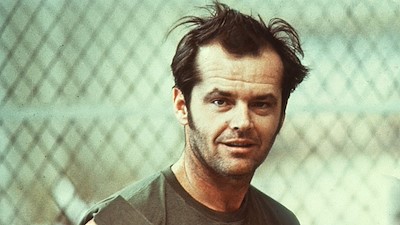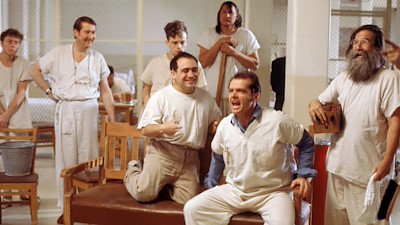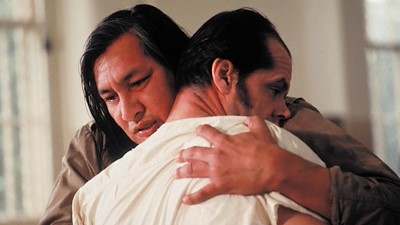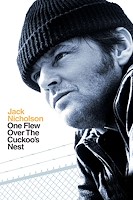One Flew Over the Cuckoo's Nest
Miloš Forman, USA, 1975o
While serving time for insanity at a state mental hospital, implacable rabble-rouser, Randle Patrick McMurphy inspires his fellow patients to rebel against the authoritarian rule of head nurse, Mildred Ratched.
One Flew Over the Cuckoo's Nest is on every list of favorite films. It was the first film since "It Happened One Night" (1934) to win all five of the top Academy Awards, for best picture, actor (Nicholson), actress (Louise Fletcher), director (Milos Forman) and screenplay (Lawrence Hauben and Bo Goldman). [...] The movie's simplistic approach to mental illness is not really a fault of the movie, because it has no interest in being about insanity. It is about a free spirit in a closed system. Nurse Ratched, who is so inflexible, so unseeing, so blandly sure she is right, represents Momism at its radical extreme, and McMurphy is the Huck Finn who wants to break loose from her version of civilization. The movie is among other things profoundly fearful of women; the only two portrayed positively are McMurphy's hooker friends Candy and Rose. I mean this as an observation, not a criticism.
Roger EbertNicht Psychiatrie ist das eigentliche Thema des Films, sondern wie gesellschaftliche Institutionen und Normen den Menschen unterjochen. Als der Film 1975 in die Kinos kommt, haben Vietnam-Krieg und Watergate-Skandal das Vertrauen in den Staat erschüttert. Autorität wird überall in Frage gestellt: Studentendemonstrationen, Rassenunruhen und Terrorbewegungen sind deutliche Anzeichen. In diesem Zusammenhang ist es zu sehen, dass der Film zum Kultfilm und der unbequeme Jack Nicholson in dieser Rolle zum ‹Helden› einer Nation werde konnte.
Stefanie WeinsheimerVoilà un film qui est grand parce que fait à l'intérieur d'un système, il nous atteint et nous transforme. Qui dit mieux ?
Jacques DoyonGalleryo




